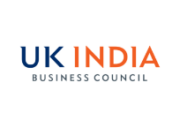Prime Minister Narendra Modi visit: A new glorious chapter in UK-India relations is beginning
The visit of India’s Prime Minister, Narendra Modi, is the second landmark trip to the UK in a month, following the successful state visit by President Xi of China. Today, Modi meets the Queen and this evening he will be greeted in a manner that is normally the preserve of rock stars, by over 60,000 admiring Indians at Wembley Stadium.

Richard Holmes, CEO Europe, Standard Chartered Bank
Behind the razzmatazz and ceremony, some important business is being done to develop the economic ties between the two countries. Modi’s visit may be brief, at around 48 hours, but it is much more significant than this brevity suggests. It throws into sharp focus the UK’s relationship with India – our shared past, dynamic present and exciting future.
Our shared history with India gives us a unique base from which to strengthen our relationship. From a colonial past, to independence in 1947 (symbolised by the statue in Parliament Square which Modi visited yesterday), both countries are now leading members of the Commonwealth.
Standard Chartered’s own history with the country dates back to 1858, with the opening of branches in Bombay and Calcutta under the Chartered Bank brand. For generations, our trade-financing activities have underpinned the commercial flows between the UK and India. From 1900 to 1913, India accounted for over 15 per cent of the bank’s operating profits. Its importance to the bank was reflected in its wider significance to the global economy at this time. In the mid-eighteenth century, India and China together accounted for 40 per cent of global GDP. While the figure has fallen to 17 per cent today, it is set to rise in the future, hitting 31 per cent by 2030. India’s share of world GDP is predicted to reach 13.5 per cent by 2050 – bigger than the US and EU – and it is also expected to have the world’s largest population by 2025. Its rapidly expanding middle class offers huge opportunities for British business.
It is worth reflecting on where we are today in UK-India relations. Bilateral relations are blossoming, giving credence to David Cameron’s assertion in 2010 that he wants it to be a “special relationship”. The UK is the largest G20 investor in India, having invested over £22.2bn in the past five years, while British companies are also the largest foreign participants in key sectors, such as financial services and pharmaceuticals.
Investment is crucially two-way, however, and we have seen some landmark deals in the last few years. In 2007, India’s Tata became a major UK employer, following its takeover of Corus. And 2008 saw automaker Tata Motors acquire Jaguar Land Rover. In fact, India invests more into the UK than into the rest of Europe put together.
Despite a general slowdown in many parts of Asia, India’s growth has been holding up well, at over 7 per cent, leading IMF head Christine Lagarde to assert earlier this year that it was the one bright spot on the cloudy economic horizon.
But it’s not just about trade and business links. The Indian diaspora, who will be turning out tonight in full force at Wembley, is now the largest minority group in the UK – at almost 1.5m people, it accounts for 2.5 per cent of the population. Cultural and educational ties are also extremely important in cementing UK-India relations. As an example, we are launching today a new partnership with the British government and Indian authorities to promote skills development in India’s fast-growing financial services sector, funding scholarships to the UK’s world-leading universities to promote our unrivalled expertise in banking and insurance.
As India’s economy develops and matures, our engagement will also change. There will be greater opportunities higher up the value chain, particularly in the services sectors, such as retail and education, and further scope to expand partnerships in professional services and IT.
At the same time, Modi wants to strengthen Indian manufacturing, with his “Make in India” campaign. And if he manages to grow this from around 15 per cent of the economy, then the impact could be positive not only for India but also for the City of London, which could look to finance some of the resultant trade.
The future holds a number of opportunities for strengthening relations between the UK and India, and goes beyond relying on our shared history together. If we can enhance economic and human links between the two countries, then we may be on the cusp of a new glorious chapter in the story of UK-India relations.
By Richard Holmes, CEO Europe, Standard Chartered Bank






